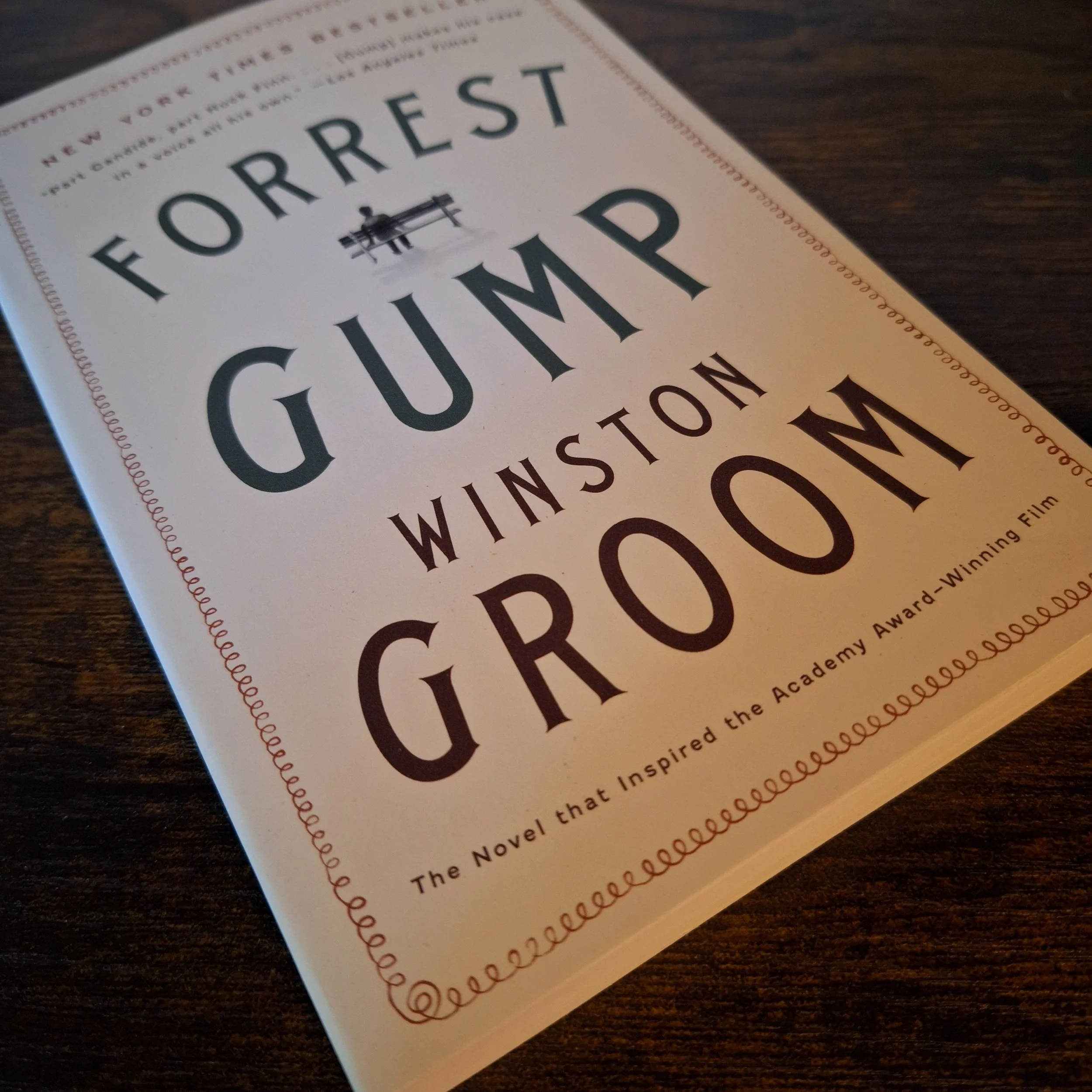Forrest Gump / The Double
Challenge 3: Read a book that was adapted into a movie. Let me guess: The book was better.
We all know the universal law that the book is better than the movie. Or is it? For this challenge, finding a book that was adapted to a movie, is it possible to find one or more examples that break this law? Using the help of imdb.com to find some of the greatest movies of all time, at least according to imdb's legions of movie enthusiasts, we can compare the greatest movies ever made to their literary counterparts in hopes of finding one or more exceptions to the rule.
Four adaptations of stories by Stephen King appear on the imdb list of the top two hundred fifty greatest movies. Two of these are short stories, a third is a series of novellas, while the fourth ranks highly on lists of his works. Including short stories in any movie versus book comparison breaks the book-over-movie rule repeatedly, in my opinion, as The Shawshank Redemption, The Green Mile, and Stand By Me are examples of the movie outdoing the book.
What about full length novels?
For this challenge, I read Forrest Gump, by Winston Groom, and The Double, by Jose Saramago, then watched the corresponding movie adaptations. I chose Forrest Gump because it ranks number eleven on imdb's list of greatest movies, and while I was tempted to read Jaws (did you know that was based on a book?), I instead read The Double because I was told some interesting things about the movie that I was sure didn't appear in the book.
Forrest Gump's success as a movie may be in spite of the film makers removing many of the greatest parts of the book. Gump is a little slow on the uptake, but his attitude, unique skills, and lots of luck propel him through one adventure after another. His lovable on-screen depiction only shows part of the complicated character in the book, a character who may not be as likeable but has more depth than we see in the movie. And the adventures that he is involved in in the book are more interesting and outrageous than what we see on screen. While showing his superhuman ping-pong skills in China, literary Gump saves Chairman Mao Zedong from drowning and is treated as a hero, only to be thrown out as a spy when he gets lost. Later, his genius level understanding of physics lands in a spot on a shuttle practicing a trip to Mars, when shenanigans involving his soon-to-be close friend Sue, a male orangutan, lead to crash landing in New Guinea.
Then there is his lifelong crush, Jenny. The book spends more time fleshing out this character, who moves in and out of his life, and eventually leaves Forrest during his stint as a wrestler, another plot element removed from the movie. We don't see her again until near the end of the book, when they cross paths yet another time. Her fate, sadly for Gump, involves another man. But unlike the movie, she is gets to live the stable and happy life she always wanted, with a house, Sunday church, and a young Forrest.
The other book I read was The Double, about a history teacher who watches a film suggested for him by a friend and notices a character that looks exactly like him. He ends up contacting this double, which ends with dramatic consequences for him, his double, and their significant others. The author pays very little attention to style and presentation, leaving dialogue in with preceding text and giving no quotations, often leading to pages that are nothing but one solid block of text. This unnecessary challenge, with plenty of odd metaphors and confused meandering makes the book harder to read. Nevertheless, it was entertaining and fun. On to the movie, Enemy.
While the movie followed the overall plot of the book closely enough, and was filled with great performances by its actors, this is an example of something I have never seen before. The film makers decided to include several spider themed moments in the movie, such as a dream sequence with a spider faced woman. There are others as well, but why they are in this movie at all is the big question to me. Nowhere in the book are there any spiders or metaphors about them. The movie makers simply hijacked the story and took it in a direction the author never intended. It’s still about a man who meets his double, but apparently that wasn't enough for the film makers. Many people suggest the double in the film isn't another person, simply a representation of the protagonist's darker side. The spiders seem to be a metaphor for his view of women. Whatever you say, Doctor Freud.
There were four points to this challenge for me, reading two books and watching two movies. Fortunately, all were worth my time. Having never seen Forrest Gump I am glad to be caught up with the rest of the world, even more so now that I read the book. The Double was a fun and interesting book, and the movie too, but I am sure I will end up reading the book a second time before I watch the movie again.
I had high hopes of one or both of these movies outdoing the books and breaking the infamous rule, but it was not to be. Forrest Gump earned its' high marks from moviegoers in my opinion, but the book had so many more adventures, more characters, and a better ending. Enemy was dark and gripping, but adding the spider stuff takes it down a peg. Meanwhile the book was entertaining and fun, even though it was a difficult read. So, challenge completed, but both books topped their movie adaptations. Maybe next time.
D.G. Raymond
